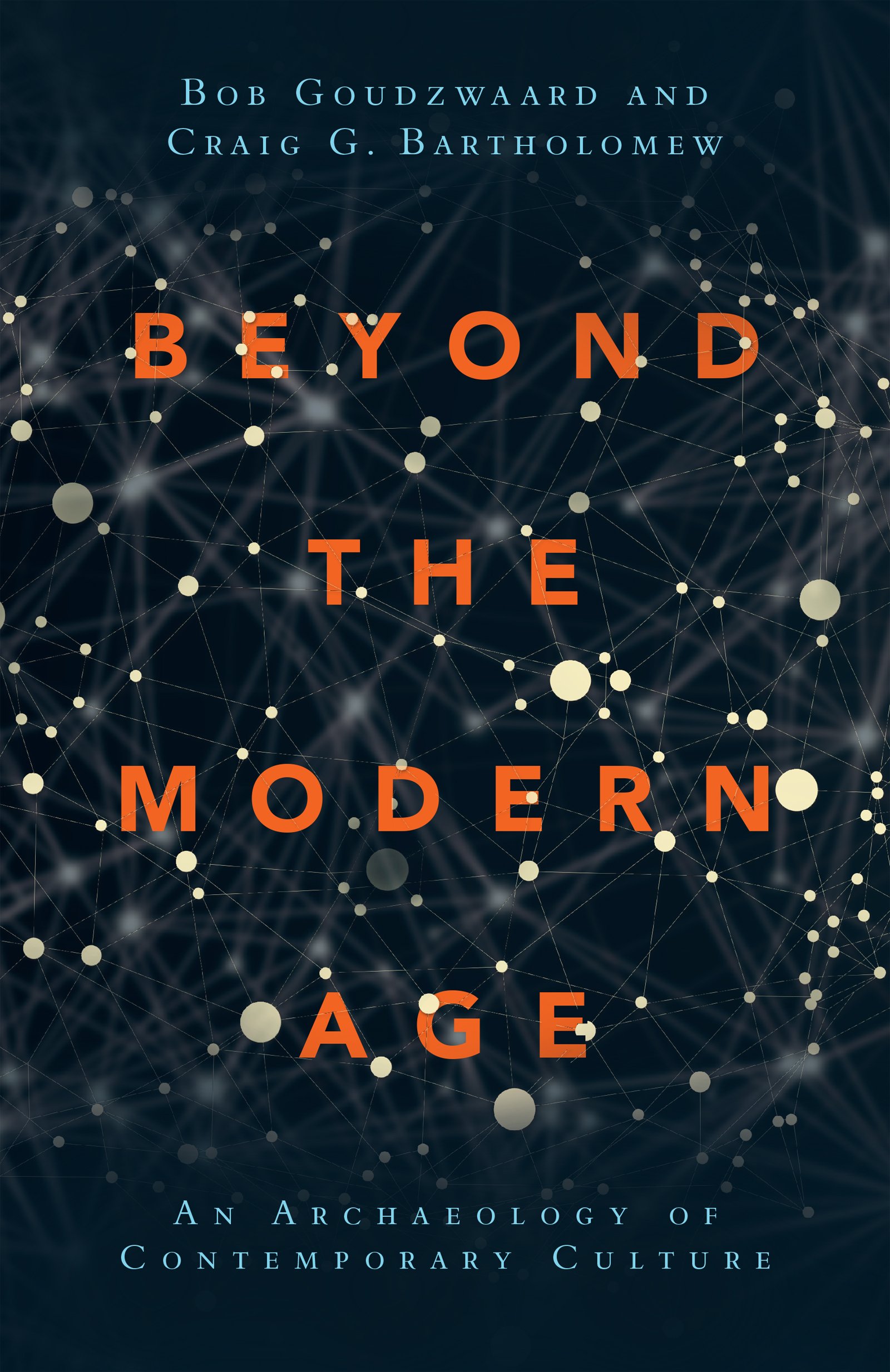Reviewed by Andrew J. Spencer
Craig Bartholomew continues to publish a large volume of books, many of which are works that have significant value for the present and for the years to come. In Beyond the Modern Age: An Archaeology of Contemporary Culture, he works with Bob Goudzwaard to publish a volume of trenchant criticism of various strains of modernism with hopeful prospects for an authentically Christian response. Like many good books, this volume arose from years of teaching by Goudzwaard, which Bartholomew helped his Dutch colleague arrange and translate into a helpful volume for contemporary Christians in the English-speaking world.
The book is divided into three parts. Part One deals with the history of modernity, which Goudzwaard and Barthomew divide into four basic categories. Chapter One deals with the classical modern worldview, which they trace from the fourteenth century. In the second chapter, the authors deal with movements that attempted to critique the structure and culture that resulted from modernism. This leads the third chapter, which addresses the rise of postmodernity and the ideological versions of modernism that cohabit our time. Chapter Four offers a critique of the four categories discussed in the previous chapters.
Part Two offers hope for moving beyond modernity, highlighting the need to transcend that intellectual movement. In Chapter Five, the authors argue that Christianity provides a strong solution to modernity because it provides a source of meaning from outside the system. The sixth chapter summarizes Philip Rieff’s sociological argument that the Judeo-Christian tradition offers a solution to many of the ills of modernity. In Chapter Seven, the authors turn to the work of René Girard, whose discussions on the nature of desire help expose the failings of modernism and may commend authentic Christianity as a viable solution. The eighth chapter traces out themes of pluralism, especially in the Kuyperian tradition, which will be necessary if religion, especially Christianity, is to provide an external source of meaning to the vacuum created by modernity. Chapter Nine recommends Christianity as a solution to the loss of meaning, particularly as it provides an answer to the creeping scourge of consumerism that has sapped much of the West of its vitality and helped give rise to creeping poverty.
In Part Three, Goudzwaard and Bartholomew move from theoretical solutions to the ills of the four streams of modernity to identify concrete points of action for contemporary Christians. Since economics has come to dominate the vast majority of political and social discourse, it is no surprise that the authors make recommendations for shifts in economic attitudes in Chapter Ten. They are generally supportive of market economics, but are strongly critical of the unhealthy consumerism that has come to dominate many Western forms of capitalism. Chapter Eleven shifts from economics to broader attitudes about participation in the marketplace and the world, arguing that one’s contribution to the world should be more significant that the ability to extract value from the world, which idea they frame as a means of curbing the impact of climate change. The book closes with an epilogue by Mark Vander Vennen that outlines Goudzwaard’s significant contributions in many forums, both academic and political.
This is a volume that addresses many of the dis-eases of the contemporary age: concerns about the environment, consumerism, poverty, militarization, workaholism, and others. Unlike other volumes, however, it does not promote easy solutions based on putting a patch on the underlying problems. Instead, through careful exploration into the contours of modernity and its descendants, Goudzwaard and Bartholomew offer a way forward that draws attention to the need to repair the foundational ideas of society and commends a way to do so.
Some readers will not agree with the critiques of market capitalism and concern for climate change that form some of the basis in this volume. However, their solutions offer a balanced response to common contemporary concerns that recognize the good of human freedom, but also recognize the penchant for the same humans to abuse their freedom. Moral reform and increased self-limitation are the prime solutions offered by the authors, though regulation of externalities is also reckoned a possible response to some of the worst problems.
The most compelling strength of this volume, which makes it one of the most significant books I’ve read this year, is that it offers a holistic and distinctly Christian response to the malaise of modernity that defines our time. Rather than simply critiquing liberalism, postmodernity, atheism, and the other children of the Enlightenment, the authors offer a way forward that is robustly orthodox, historically grounded, and targeted at the contemporary push points of culture. This book warrants careful reading and discussion in the years ahead.
Andrew J. Spencer is associate vice president for institutional effectiveness at Oklahoma Baptist University. He serves as senior research fellow at the Institute for Faith, Work, and Economics, and as Director of Education at Galilee Baptist Church of Shawnee, Oklahoma.
